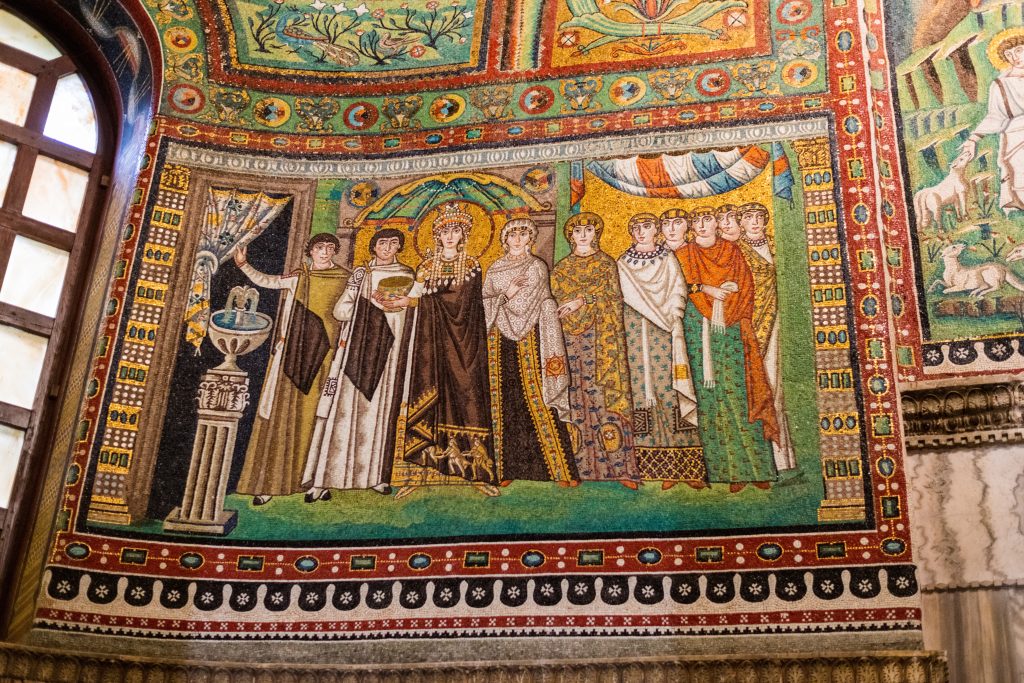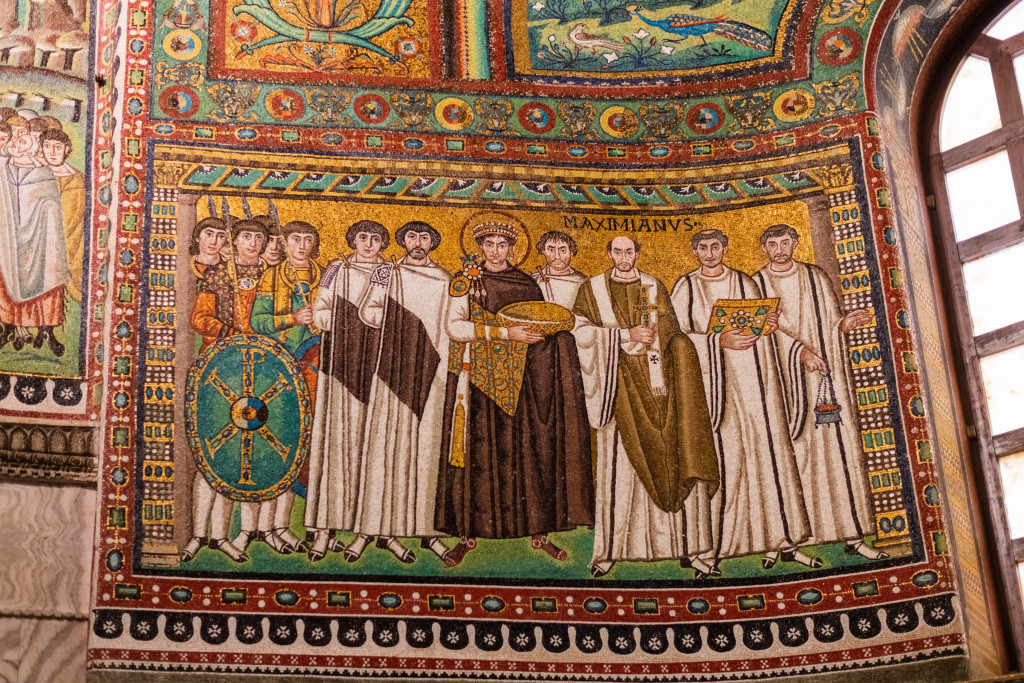Theodora, Empress
Empress of Byzantium in 6th century
Theodora is considered to be the most powerful woman in Byzantine history. She was married to the Eastern Roman (Byzantine) Emperor Justinian who ruled from Constantinople in the sixth century. She was born in 500 CE to a bear trainer and actress at the Hippodrome, and was forced to be a child actress, dancer, and prostitute along with her sister. She had one son out of wedlock at age 14 (likely a result of rape), and later became a devout follower of a religious minority, the Monophysites, who argued that Jesus had one divine nature. She was eventually introduced to and fell in love with Justinian, a current senator. As the current laws forbid marriage between political leaders and lower classes, Justinian persuaded his uncle Emperor Justin to pass a law allowing inter-class marriage.


Biography – Justinian’s reign began in 527, and he and Theodora were considered a formidable power couple in spiritual and political matters. Under their reign, the Byzantine Empire was expanded to include most of Italy and north Africa. Theodora inspired Justinian and his troops during the Nika revolts to stand firm and fight instead of flee, and is credited with saying “Royal purple is the noblest shroud.” She is also credited with passing legislation protecting women and girls from brothels and forced prostitution, abolishing capital punishment for adultery, making divorce easier for women, and forbidding persecution of religious minorities. Legislation passed during Justinian’s reign is widely known as the Justinian Code, and serves as the basis for most civil law in Europe and South America today. It is notable that no significant legislation was passed in the 17 years of Justinian’s reign after Theodora’s death in 548 from breast cancer, indicating that she was likely the driving force behind the passage of laws and was the real power during Justinian’s reign. However, as is often the case with powerful women, she and her chief political advisor Antonina are both described by the disreputable historian Procopius in vulgar and sexually graphic terms and are accused of controlling their husbands. Theodora is buried in Constantinople at the Church of the Holy Apostles, and was sainted in the year 2000 by the Universal Syrian Orthodox Church.
Resources:
- Marchetti, Guido. Women in the Mosaics of Ravenna. Ravenna, Italy: Opera di Religione della Diocesi di Ravenna, 2015.
- Potter, David. Theodora: Actress, Empress, Saint. New York: Oxford University Press, 2015.
- Salti, Stefania, and Renata Venturini. The Life of Theodora. Ravenna, Italy: Edizioni Tipolito Stear, 2003.
